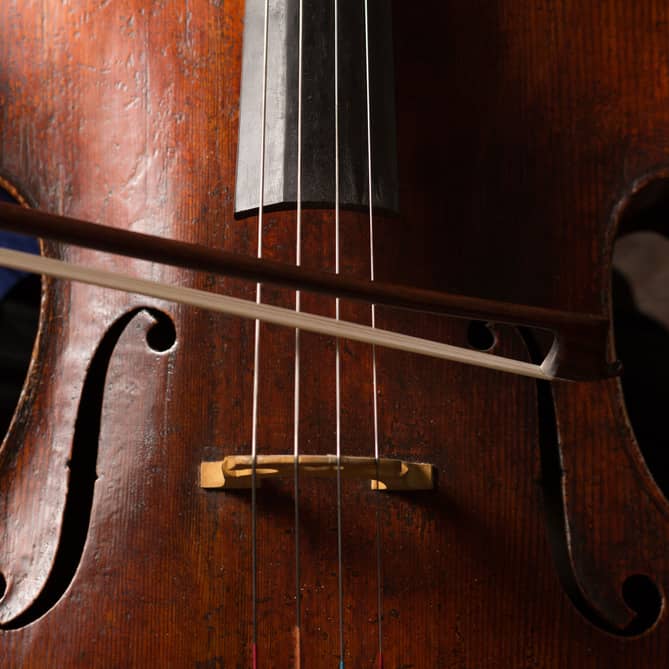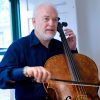
Amtrak Charging for Cellos?
Paul Katz
Amtrak Charging for Cellos? – by Paul Katz
The joys of a musical touring career continue! An Amtrak official recently stopped me from boarding a train to Boston in New York’s Penn Station, telling me that I must buy a seat for my cello!” I’ve been traveling Amtrak for 50 years and never once have I had to pay for the cello,” I protested. “I don’t make the rules, and I don’t know what trains you’ve been riding, but it’s on our website, so there is no way you can get on until you get a ticket.” The train was leaving in 15 minutes, so what the hell – furious and furiously, I ran to the ticket window and bought a second seat!
But later I checked Amtrak’s website and discovered (buried in a long list of Special Items), that cellos travel free – well, sort of – they can be carried on in lieu of a piece of baggage, and are subject to a $10 “service fee.” (Who knows what “service” we get, but even if it’s enforced, it’s a lot cheaper than a full fare.) Passengers are allowed two pieces of baggage – so you can bring one piece of baggage plus your cello. You will find cellos specifically mentioned as a Medium-Sized Musical Instrument that “may be transported free of charge.” I suggest everyone print this document and carry it when traveling on Amtrak. You might as well first try boarding with a pleasant smile, as I believe the provision is only sporadically enforced, and you may save yourself $10. But in case you are stopped, allow a little extra time for arguing, and for returning to the ticket window in the event that you lose!
Also, while perusing the Special Items page, I was relieved and gratified to learn that Amtrak does not allow firearms to be carried on board (but you can check 50 lbs of guns and ammo in baggage, at no service charge)! Most of us, I hope, will not be using that free service, and the $10 to keep our instrument with us is not too onerous. But as trains, planes, customs and travel in general are becoming increasingly problematic for musicians with instruments, I recommend traveling armed with a folder of documents for self-protection. Print out the Amtrak regulation – neither I nor the Amtrak officials were properly informed and Amtrak charged me a full fare for the cello.
When traveling by air, carry the FAA guidelines which specifically allow for musical instruments in the cabins of aircraft.
Several instruments have been confiscated by airport customs officials in Europe recently; CelloBello will soon be posting a blog on this topic with more information. When crossing borders, be prepared and have proof of ownership papers for your instrument. Our research tells us that it may now be helpful, perhaps necessary, to obtain an ATA Carnet, also known as the Merchandise Passport, which is an international customs document that expedites temporary imports (such as musical instruments) into foreign countries.
You never know which travel official may be waiting for you with a new regulation, so travel well-armed with the proper documents in case of a surprise attack!
Subjects: Travel
Tags: air travel, aircraft, airport customs, Amtrack Regulation, Amtrak, baggage, buying a second seat, cabins, cabins of aircraft, cello, cellobello, customer service, documents, extra charges, FAA, having the proper documents, international customs, Katz, Medium-Sized Musical Instrument, musical tours, passport, Paul, purchasing extra seats, regulations, rules, service, special items, tickets, touring careers, train travel, Travel, travel officials, travel with instruments
